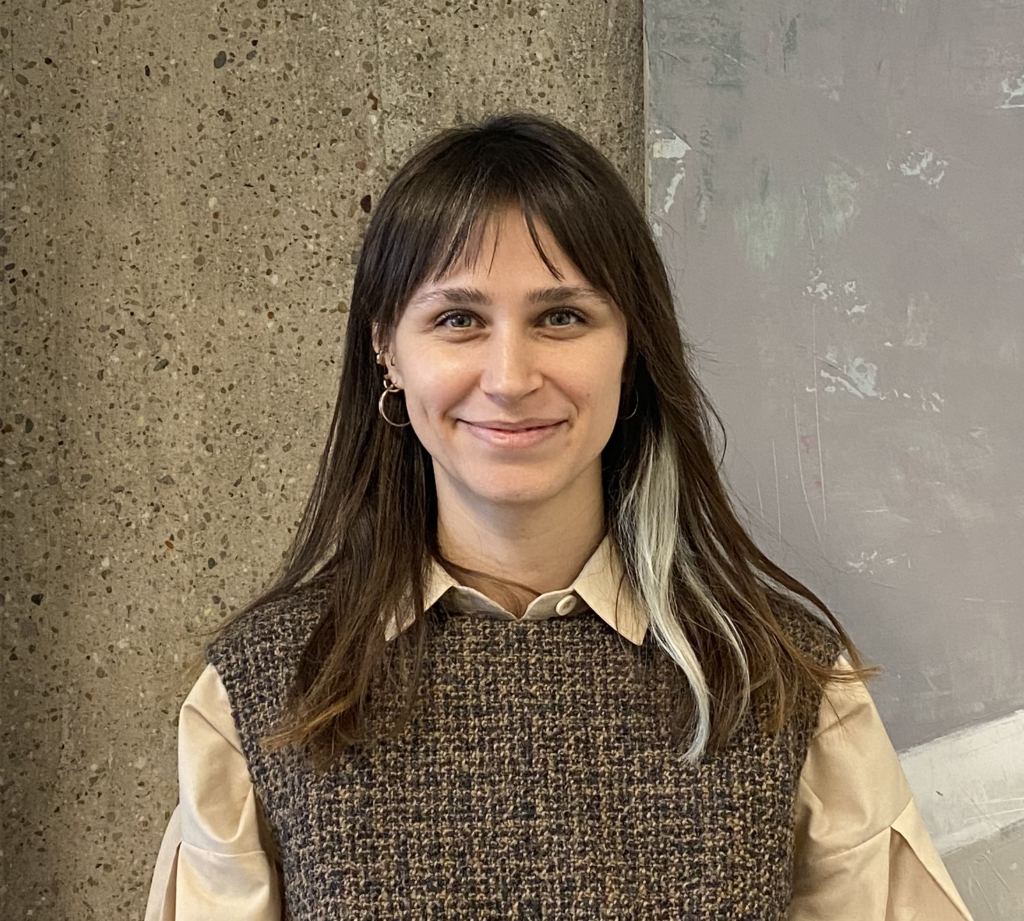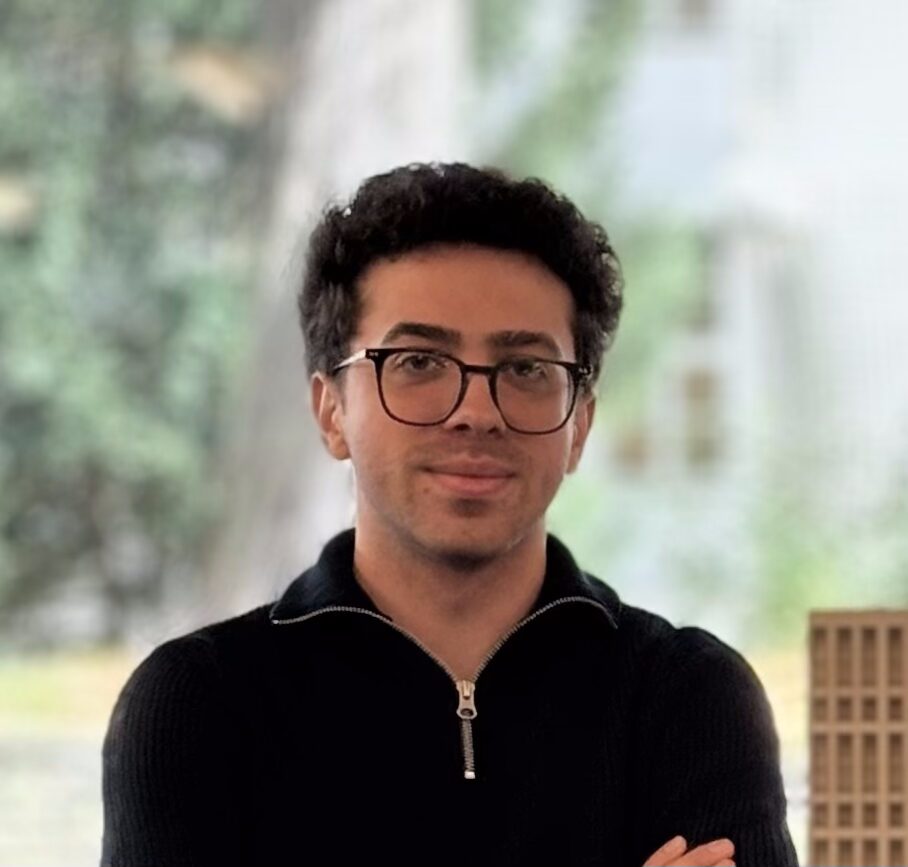Team

Ceren Sezer
Group Leader
sezer@staedtebau.rwth-aachen.de
Ceren Sezer is an architect and urban planner, currently leading a Junior Research Group at RWTH Aachen University’s Institute for Urban Design and European Urbanism.
Ceren Sezer
Ceren Sezer is a Research Group Lead of Community Collaboration Laboratory for Just Transitions at RWTH Aachen University’s Institute for Urban Design and European Urbanism. After obtaining her Ph.D. and M.Sc. in Urbanism from Delft University of Technology in the Netherlands, Sezer was awarded the German Academic Exchange Service (DAAD) grants twice, enabling her to work as a Visiting Professor at RWTH Aachen University. Her research focuses on developing qualitative and quantitative tools to analyze the relationship between urban form and sustainable urban transformations, as well as exploring the connections between urban form and vibrant urban life. Currently, her work is centered on decarbonization strategies at university campuses developed through technology-driven and conventional community participation methods and tools. This research is funded by the Excellence Strategy of the Federal Government and the Länder, provided by two German Ministries, BMBF and MKW, for the period from January 2024 to 2029.

Alper Al
Research Associate
alper.al@staedtebau.rwth-aachen.de
Alper AL is a research associate and PhD student at RWTH Aachen University Institute for Urban Design and European Urbanism. He is working on energy communities at university campuses and participatory methodologies fostering climate action.
Alper Al
Alper AL is an architect and researcher, currently conducting his PhD research at the RWTH Aachen University Community Collaboration Lab since July 2024. His research is supported under the German University of Excellence Network Research Grant | by BMBF & MKWDOKORP. He received his bachelor’s degree in architecture from TED University (Türkiye) in 2020, with a secondary degree in Communication and Media Studies from the same university. He received his Master of Science degree from Tampere University (Finland) in 2022. He previously worked as a research assistant in master-level architectural design studios at TED University between 2023-2024. He is currently working on digital and analog participatory tools in energy transition. He focuses on serious games as participatory tools to foster energy communities at university campuses.

Liyuan Ma
Research Assistant
Liyuan Ma is a research assistant at RWTH Aachen University’s Institute for Urban Design and European Urbanism. He has special interest in digital participation, augmented reality (AR) collaboration tools and sustainable transformation of city and neighborhoods.
Liyuan Ma
Liyuan Ma is an architect and researcher with focus of participatory urban design and digital tools such as augmented reality(AR). He holds a Master’s degree in Transforming City Regions from RWTH Aachen University, where his outstanding thesis explored the use of AR for community-based collaborative design. With academic experience across Europe and China—including TU Berlin and the AA School in London—he has worked in architecture practices in The Netherlands, Germany, and China. Currently a Research Assistant at RWTH Aachen, he contributes to multiple interdisciplinary projects focusing on digital participation, energy poverty, circular economy, and public space transformation, while also coordinating teaching and international workshops. His work has been recognized in exhibitions, international conferences.

Ezgi Ismar
Research Assistant
ismar@staedtebau.rwth-aachen.de
Mebrure Ezgi Ismar is a research assistant at RWTH Aachen University’s Institute for Urban Design and European Urbanism. Her research focuses on the intersection of serious gaming, spatial design, and participatory processes influenced by gaming sessions.
Mebrure Ezgi Ismar
Mebrure Ezgi Ismar is an architect and urbanist with a strong interest in research-driven design and collaborative transformation processes.She currently works as a research assistant at RWTH Aachen University’s Community Collaboration Lab, where she focuses on participatory approaches to spatial planning and collaborative transformation processes. Her master’s thesis, Gaming as a Participatory Tool in Spatial Design, explored the use of serious games to engage citizens in the early stages of urban design, with a prototype developed around rainwater harvesting in Aachen. She contributed to the creation and publication of the RWTHx MOOC Sustainable Transformation of Cities and Regions, supporting both content development and coordination. Previously, she worked for two years as an architect in Turkey and was part of the competition team at Ingenhoven Architects in Düsseldorf, where she translated complex design concepts into visual narratives. Ezgi is confident working across a range of scales—from regional strategies to architectural detail—always with an eye toward sustainable and circular solutions.

Aslı Alanlı
Research Associate
Aslı Alanlı is an architect and researcher currently conducting postdoctoral studies at RWTH Aachen University. Her research areas focus on university spaces and ecological thinking, with a particular interest in architectural education as well.
Aslı Alanlı
Aslı Alanlı is an architect and researcher currently conducting postdoctoral studies at RWTH Aachen University’s Community Collaboration Lab since February 2025. Her research visit is supported by TÜBİTAK, the Scientific and Technological Research Council of Türkiye. She received her PhD in Architecture from Middle East Technical University in 2023, a master’s degree from TOBB University of Economics and Technology in 2017, and a bachelor’s degree from Middle East Technical University in 2012.
She previously worked as a part-time lecturer in architectural design studios at Muğla Sıtkı Koçman University (2021–2022) and TOBB University of Economics and Technology (2018–2021). Her doctoral thesis studied university campuses from an ecological thinking perspective. Her current work at CCLab explores creative community participatory methodologies and tools for campus transformation and architectural education. She specifically focuses on creative mapping techniques as participatory art-based tools for placemaking at university campuses.

Furkan Erdem Sözeri
Research Associate
Furkan Erdem Sözeri is a urban designer and city and regional planner, currently, a research associate and PhD student at RWTH Aachen University, who specialized around neurourbanism and urban design. His doctoral studies at CCLab are supported by the Ministry of National Education of Türkiye.
Furkan Erdem Sözeri
Furkan Erdem Sözeri is a urban designer and city and regional planner with Bachelor’s and Master’s degrees from Middle East Technical University (METU), where he graduated first in the Faculty of Architecture and first in his department. He previously worked as a Research Assistant in the City and Regional Planning Department at METU (2023–2025), contributing to teaching and urban design studio coordination. His doctoral studies at CCLab are supported by the Ministry of National Education of Türkiye for the period between 2025 and 2030. His research focuses on neurourbanism, spatial experience, and urban design, exploring how the built environment shapes cognitive and emotional well-being. After completing his PhD, he will continue his academic career at METU.

Yağmur Aşçı Coşkun
Research Associate
Yağmur Aşçı Coşkun is an urban planner and designer with academic and teaching experience. She is currently pursuing her PhD at RWTH Aachen University, focusing on participatory planning, youth engagement, and sustainable urban transformation.
Yağmur Aşçı Coşkun
Yağmur is an urban planner and designer with Bachelor’s and Master’s degrees from METU, where she graduated as the valedictorian of the Faculty of Architecture and received the 2022 Master’s Thesis Incentive Award from the İlhan Tekeli Foundation for Urbanism Culture, recognising the excellence and societal relevance of her research. Before joining RWTH Aachen, she worked for four years as a Research and Teaching Assistant at the Izmir Institute of Technology, contributing to studio coordination, design research, and collaborative teaching. She has been involved in national and international research projects, including a Horizon Europe project on social economy and community innovation, as well as TÜBİTAK-funded research on urban form, environmental health, and children’s spatial experiences. Her research focuses on environmental psychology, participatory planning, youth and community engagement, and sustainable urban transformation. At CCLab, she joins us as a doctoral researcher, contributing to our work on spatial justice and just energy transitions.